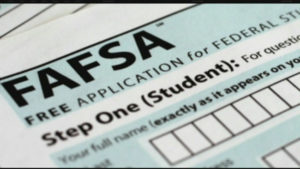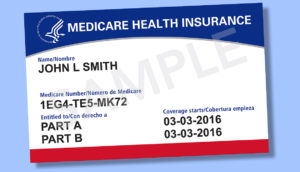Dear Liz: My wife and I bought our house 61 years ago in Southern California. The wife passed away seven years ago, and I became the sole owner. If I should die owning the house, I know my daughter will inherit and her tax basis will be the value of the house on that date. But if I sell the house, I’m not sure what my basis will be. Do I pick up the 50% of what the house was worth on the day my wife died and add to that the 50% of the original purchase price that would be mine? Or is my basis the original price of the house?
Answer: In most states, only your wife’s half of the home would get a new value for tax purposes at her death. In community property states such as California, though, both her half and yours get this step up in tax basis.
Tax basis determines how much taxable profit there might be when property and other assets are sold. For those who aren’t sure how tax basis works, a simplified example might help.
Let’s say Raul and Ramona bought their home for $40,000 in 1959. In 2013, when Ramona died, the home was worth $800,000. Today, it’s worth $1 million.
At her death, Ramona’s half of the home got a new tax basis. Instead of $20,000 (half of the purchase price), her half of the home now has a tax basis of $400,000 (half of its $800,000 value at the time).
In most states, Raul would keep the $20,000 tax basis on his half, so his combined basis in the home would be $420,000. If he should sell the home for $1 million, the profit for tax purposes would be $580,000.
In California and other community property states, the entire house gets a step up in basis to $800,000 when Ramona dies. If Raul sells the house for $1 million, the profit (or capital gain, in tax parlance) would be $200,000.
Of course, there would be no tax owed on this home sale, since Raul can exempt up to $250,000 of home sale profits. Raul could use Ramona’s home sale exclusion, and avoid tax on up to $500,000 of home sale profit, if he sells the home within two years of her death.
If Raul keeps the home until his death, on the other hand, it will get a further step up in tax basis equal to whatever the home’s fair market value is at the time (let’s say $1.2 million). If the daughter sells it for that amount, no capital gain tax would be owed.
 Today’s top story: What Biden on Trump could do for your student loans. Also in the news: Is moving now your best financial pros and cons, how to get a personal loan without perfect credit, and what to do when you can’t afford food.
Today’s top story: What Biden on Trump could do for your student loans. Also in the news: Is moving now your best financial pros and cons, how to get a personal loan without perfect credit, and what to do when you can’t afford food. Today’s top story: When debt relief does more harm than good. Also in the news: New ways to get more money for your old car, back-to-school tips for avoiding child identity theft, and the top sacrifices made by ‘super savers’.
Today’s top story: When debt relief does more harm than good. Also in the news: New ways to get more money for your old car, back-to-school tips for avoiding child identity theft, and the top sacrifices made by ‘super savers’. Today’s top story: Should students gamble on an Income Share Agreement? Also in the news: How to make a debt-free switch to cashless payments, 4 home insurance pitfalls to avoid during hurricane season, and see how much home you can afford with the 30/30/30 rule.
Today’s top story: Should students gamble on an Income Share Agreement? Also in the news: How to make a debt-free switch to cashless payments, 4 home insurance pitfalls to avoid during hurricane season, and see how much home you can afford with the 30/30/30 rule. Today’s top story: How to adjust your school supplies budget for the online classroom. Also in the news: 5 things to do with all that money you haven’t been spending the past few months, is moving now the best financial move for Millennials, and how COVID-19 may impact applying for financial aid.
Today’s top story: How to adjust your school supplies budget for the online classroom. Also in the news: 5 things to do with all that money you haven’t been spending the past few months, is moving now the best financial move for Millennials, and how COVID-19 may impact applying for financial aid.  Today’s top story: How first-home shoppers can keep a cool head in a hot market. Also in the news: When debt relief does more harm than good, how to make a debt-free switch to cashless payments, and what to know before using buy now, pay later financing.
Today’s top story: How first-home shoppers can keep a cool head in a hot market. Also in the news: When debt relief does more harm than good, how to make a debt-free switch to cashless payments, and what to know before using buy now, pay later financing.  Today’s top story: Working remotely in the pandemic may generate a tax surprise. Also in the news: Advice on how to fly safely over the holidays, student debt continues to rise for new pharmacists, and how to save money during Medicare open enrollment this year.
Today’s top story: Working remotely in the pandemic may generate a tax surprise. Also in the news: Advice on how to fly safely over the holidays, student debt continues to rise for new pharmacists, and how to save money during Medicare open enrollment this year.